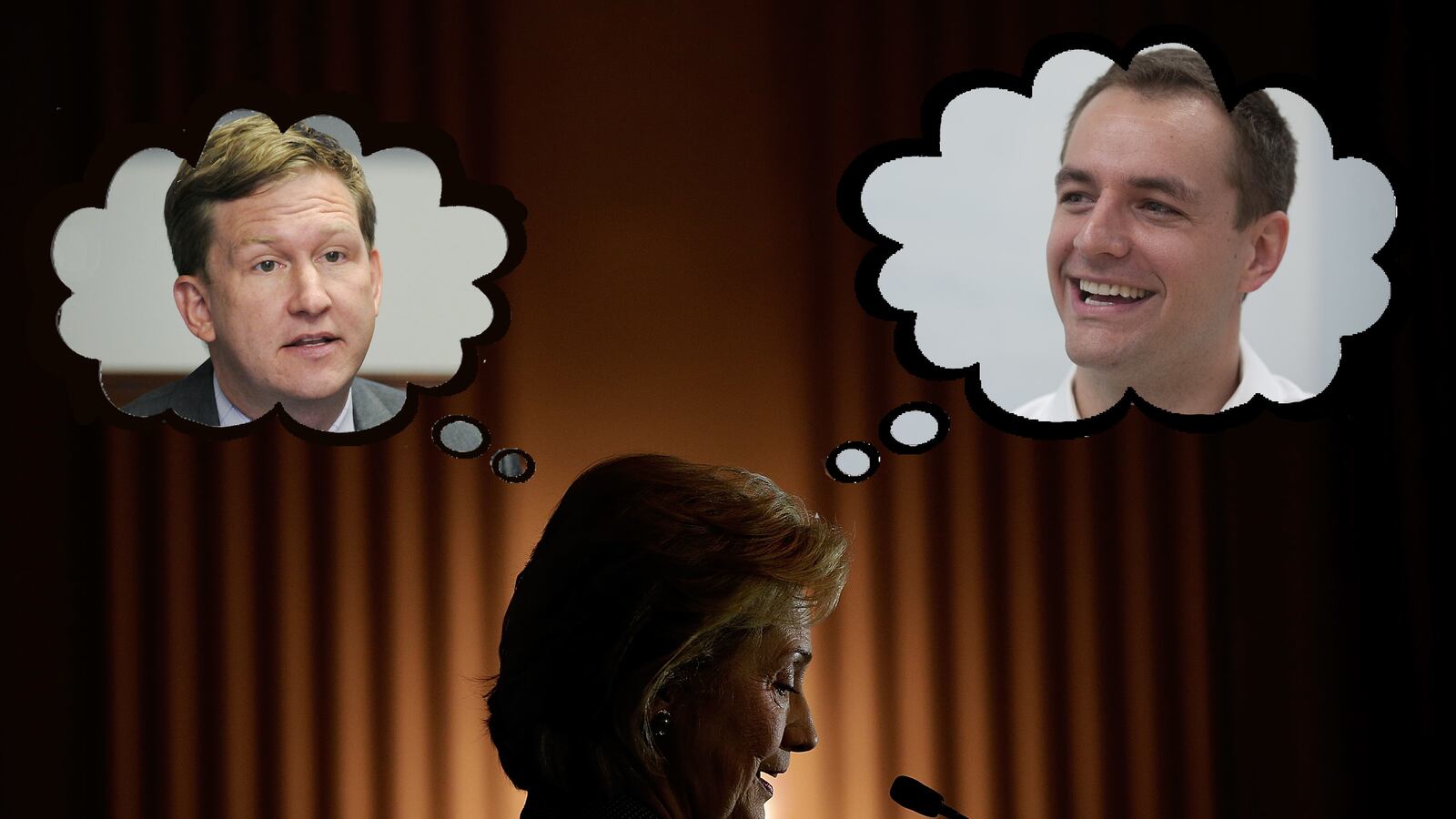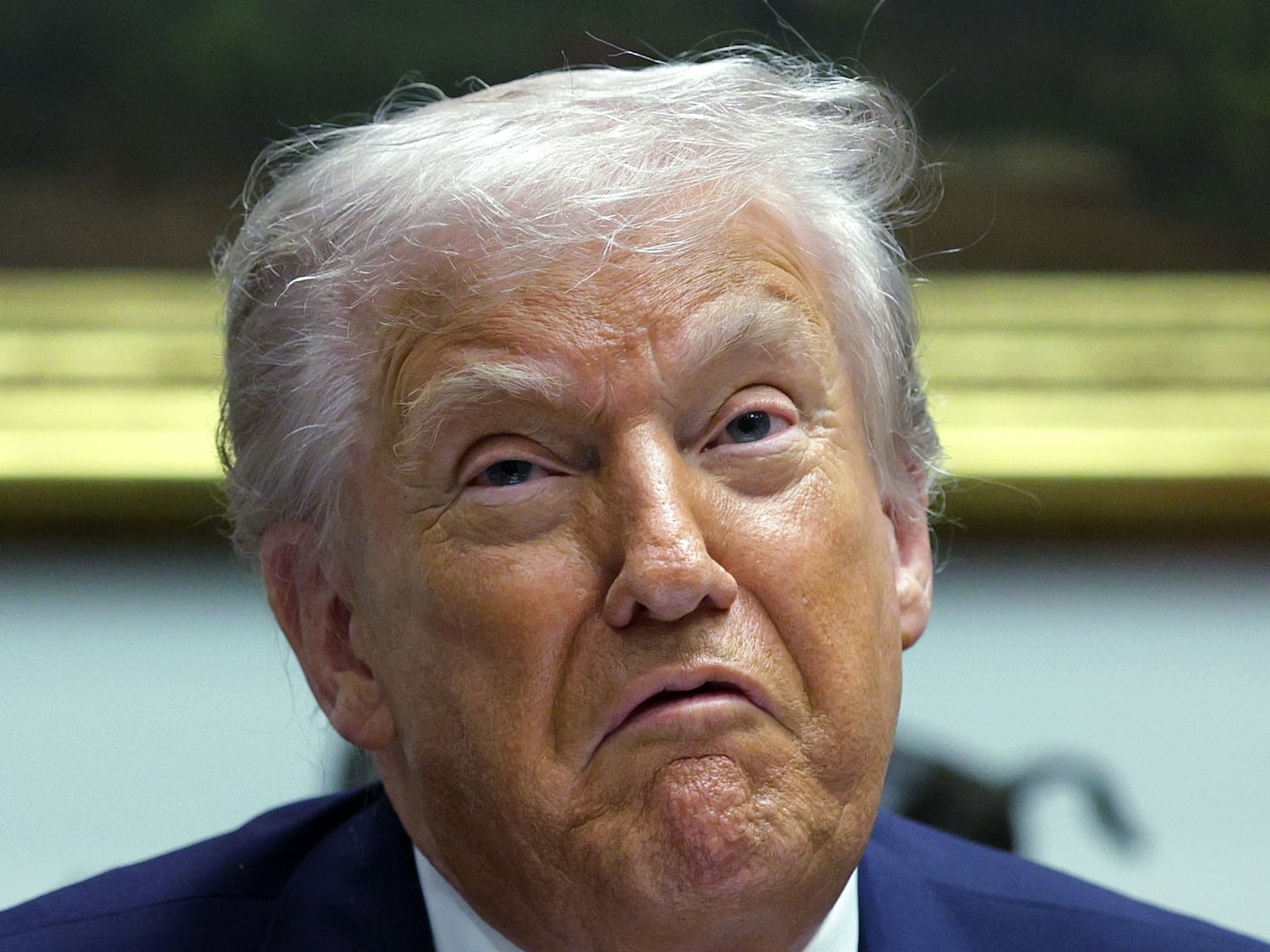Wherever two or more Democrats are gathered these days, there is only one thing they talk about.
“Who is going to be Hillary Clinton’s campaign manager?” asked one political operative in the hallways of a Midtown Manhattan hotel where some of the party’s top strategists and donors had gathered last week for the annual meeting of the Ready for Hillary super PAC finance committee. “That is all everyone wants to know.”
“As you can imagine, this is not the first time I have had this conversation,” said another Democratic strategist, who added that even on a post-midterm vacation with fellow politicos, it was a constant source of discussion.
In a series of interviews with operatives inside and outside the Clinton orbit, most professional Democrats said the current favorite was Robby Mook, a well-traveled veteran at 35 who last served as the campaign manager for close Clinton friend Terry McAuliffe’s successful bid to become governor of Virginia in 2013. Prior to that, he was executive director of the Democratic Congressional Campaign Committee, leading the party to a net gain of eight seats in the House in 2012. Mook did stints on Howard Dean and John Kerry’s 2004 presidential campaigns, and helped elect would-be Hillary rival Martin O’Malley as Maryland governor in 2006. But what really caught the eye of Democrats was his work on behalf of Clinton in 2008, when he led the campaign’s efforts in Nevada, Ohio, New Hampshire, and Indiana—all Clinton victories.
The next most likely campaign manager is thought to be Guy Cecil, who is just wrapping up a stint as the executive director of the Democratic Senatorial Campaign Committee. Cecil, too, is a Clintonista, having worked as the national political and field director for Hillary’s 2008 primary. What brought Cecil to prominence, though, was his work as the DSCC political director in 2006, when he helped the party retake the Senate and returned to the job after the Clinton primary loss, helping the Democrats retain the majority despite the tough climates of 2010 and 2012. The worse-than-expected showing by Democrats in this month’s midterms is believed to have sunk his stock, however.
Other names in the mix include Ace Smith, a longtime California-based political operative; Marlon Marshall, another former Clinton aide who now works in the White House; and Stephanie Schriock, the president of EMILY’s List.
“You need someone who understands Hillary, who understands the voters, who understands that this is a professional job,” said Peter Rosenstein, a Ready for Hillary fundraiser who traveled to New York for last week’s finance committee meeting. “I think all of them bring a newness, which is good.”
What would normally be a selection process consigned to the furthest back rooms of the clubhouse has spilled out into the open in recent weeks. Earlier this month, ABC News published emails that Mook had written to some of his friends in the operative class, rallying them on behalf of Democrats for various causes over the last five years and reminding them of upcoming reunions. Despite references to “The Mook Mafia” and a call to “smite Republicans mafia style,” the missives were fairly innocuous.
Yet still, one never likes to see one’s name attached to headlines that include the words “Secret Emails.”
“It was stunningly indiscreet,” said one donor of the leak. “Juvenile, offensive, and dumb.”
Others interviewed for this article, almost all of whom asked that their names not be used in order to avoid seeming like they were interfering in the process of an outsized yet undeclared yet all but certain eventual nominee, said they saw the hand of a Mook rival behind the leaked emails.
It was to Mook’s credit, these sources said, that he didn’t respond publicly to the controversy, borrowing a page from the No-Drama Obama team and shunning an insider-y, process-oriented story.
“That was a good sign,” said one operative helping to lay the groundwork for a Hillary run. “If he is running the campaign, they won’t get dragged down by the kind of dumb shit that sunk them in 2008.”
That the selection process is even being discussed and written about marks something of a unique moment in American politics. It is the first time that a campaign staff job, albeit a major one, has been debated before the public, as if the contenders were political candidates themselves.
“This is a great topic for political pundits and donors with too much time on their hands,” said Robert Zimmerman, a longtime Clinton supporter and Democratic National Committeeman. “At the end of the day, it shouldn’t much matter.”
But for many Democratic operatives and donors, the absence of a competitive primary campaign means that these kind of internal squabbles are the only game in town. Instead of lining up behind candidates with competing agendas, interested parties have to line up behind potential campaign staffers. And which direction Clinton goes will be parsed endlessly, as all things Clinton does are, for evidence of what kind of campaign she will run.
A number of Democrats who have worked with Cecil said the former DSCC head is far more top-down than Mook would be, making a point of giving Senate candidates directives from D.C. Cecil is seen as ideologically close to the Democratic Leadership Council side of the Clinton extended family, eschewing fights about income inequality or gratuitous squabbles about Wall Street in favor of pushing social issues. He has been known to brag about his office’s ability to get involved in GOP primaries in order to pick the best potential opponent for the Democratic candidate.
Mook, meanwhile, is seen as less top-down, someone who is a field organizer by training and who is, in the words of one fellow strategist, “more progressive than Guy is. Guy wants to split the difference with Republicans. Robby isn’t afraid to take a few shots.”
“If they go with Guy, it will be a sign that it is much more of a customary campaign,” said another operative, “Like the kind we saw John Kerry or Al Gore run, where everybody gets their talking points and is expected to follow them. Robby would signal that the campaign would be more like the Obama campaign—bottom up, open to energizing the base, letting people do their thing in places they know best.”
Meanwhile, many progressives say the top job should go to Schriock, who has helped build a powerhouse at EMILY’s List.
“She is the one the left has the relationship with,” said Neil Sroka, a spokesman for Democracy for America. “She would make it easier to talk about income inequality. She would understand where we are coming from.”
All the wrangling over the potential candidates for the job, months before a campaign announcement, is a testament to how difficult running Clinton’s 2016 operation will be. At this point, the number of people who want to bend the candidate’s ear with advice is practically the same number of people who are registered members of the Democratic Party. The number who consider themselves close personal friends is only slightly less long, as is the number who have worked for the Clintons in some capacity. And then there is, of course, Bill, still regarded as the party’s sharpest political mind but one who hasn’t endured the rigors of a day-to-day campaign in some time. The 2008 campaign almost collapsed under the weight of its own drama.
Which is, Democratic operatives say, part of the reason to join up again.
“There was so much territorial dumb shit back in 2008,” said one. “You look back and you see all the ways we fucked up. This is a chance to make that right.”






